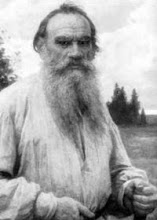

While for many students of history, most history texts, history courses, and innumerable History Channel biopics, history is all about the dead guys, for me its basically about dead women. Two incredible biographies have shaped much of my political, social, and economic ideology and therefore a good bit of my teaching I guess as well. The autobiographies of
Emma Goldman,
Living My Life, and
Elizabeth Gurley Flynn,
Rebel Girl, have had a tremendous impact on my interpretation of history and society. Still, these works are for the most part useful for an audience of the first half of the 20th Century, not so much for your average high school student.
That being said there are ways to integrate these kinds of works in your classroom. You can use excerpts that pertain to particular periods that you and your students are studying or you could recommend these books to your more keenly aware and advanced students. What ultimately happens is your students become the disseminators of the ideas contained in the biographies because they know exactly how to translate them for their peers. There are also obvious alternatives to biographical texts such as documentary films, feature length dramas, and graphically illustrated texts. Concerning Emma Goldman there are a number of great resources such as the
PBS documentary about her life, the award winning film
Reds, and an
illustrated book about her radical life.
Still, I find that my students appreciate the spirit of Emma Goldman and The Rebel Girl more than they actually appreciate women who have been dead for 70 and 45 years.
What biographies are important to you? Do these biographies impact your own perspectives on the world we muddle around in? How might you use these individual narratives in your curriculum? How will you "translate" your favorite dead people's lives for the modern era?





